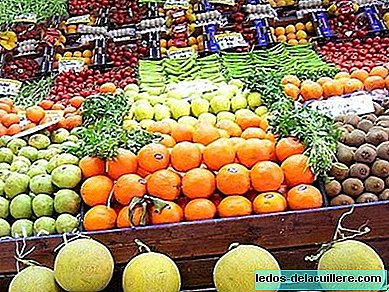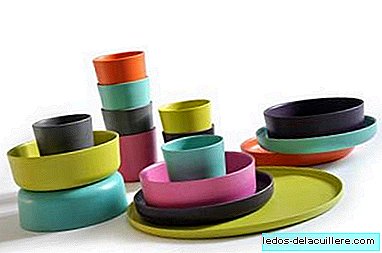
A few days ago we talked about the decalogue of the Mediterranean diet for children, which are based largely on the ten basic recommendations of the Mediterranean Diet, of a more general nature, for an adult audience.
These are recommendations of one of the key websites in the dissemination of the benefits of the Mediterranean diet, which we already talked about because it contained a specific section dedicated to children (now disappeared), Mediterranean Diet Foundation.
This is the decalogue of the Mediterranean Diet that bets on healthy eating and that every family should take into account:
Use olive oil as the main addition fat. It is the most used oil in Mediterranean cuisine. It is a food rich in vitamin E, beta-carotenes and monounsaturated fatty acids that confer cardioprotective properties. This food represents a treasure in the Mediterranean diet, and has lasted for centuries among regional gastronomic customs, giving the dishes a unique flavor and aroma.
Consume food of plant origin in abundance: fruits, vegetables, legumes and nuts. Vegetables, vegetables and fruits are the main source of vitamins, minerals and fiber in our diet and provide us with a large amount of water. It is essential to consume five servings of fruit and vegetables daily. Thanks to its high content of antioxidants and fiber, they can help prevent, among others, some cardiovascular diseases and some types of cancer.
Bread and food from cereals (pasta, rice and especially their whole grain products) should be part of the daily diet. Daily consumption of pasta, rice and cereals It is indispensable for its carbohydrate-rich composition. They provide us with an important part of the energy needed for our daily activities. We must bear in mind that their integral products provide us with more fiber, minerals and vitamins.
Unprocessed, fresh and seasonal foods are the most suitable. It is important to take advantage of seasonal products since, especially in the case of fruits and vegetables, it allows us to consume them at their best, both at the level of nutrient intake and its aroma and flavor.
Eat dairy products daily, mainly yogurt and cheeses. Nutritionally, it should be noted that dairy products are excellent sources of high biological value proteins, minerals (calcium, phosphorus, etc.) and vitamins. The consumption of fermented milks (yogurt, etc.) is associated with a series of health benefits because these products contain live microorganisms capable of improving the balance of the intestinal microflora.
Red meat should be consumed in moderation and if it can be as part of stews and other recipes. And processed meats in small quantities and as ingredients for snacks and dishes. Meats contain protein, iron and animal fat in varying amounts. Excessive consumption of animal fats is not good for health. Therefore, consumption in small quantities, preferably lean meats, and as part of dishes based on vegetables and cereals, is recommended.
Eat plenty of fish and eggs in moderation. The consumption of blue fish is recommended at least once or twice a week since its fats (although of animal origin) have properties very similar to fats of plant origin to which they are attributed protective properties against cardiovascular diseases. At this point, we recall the recent restrictions on bluefish consumption for childhood, pregnancy and lactation. Eggs contain very good quality proteins, fats and many vitamins and minerals that make them a very rich food. Consuming three or four eggs a week is a good alternative to meat and fish.
Fresh fruit It should be the usual dessert. Sweets and cakes should be consumed occasionally. Fruits are very nutritious foods that bring color and flavor to our daily diet and are also a good alternative in the middle of the morning and as a snack.
Water is the quintessential drink in the Mediterranean. Wine should be taken in moderation and during meals. Water is essential in our diet. Wine is a traditional food in the Mediterranean diet that can have beneficial effects on health by consuming it in moderation and in the context of a balanced diet.
Perform physical activity every day, as it is as important as eating properly. Staying physically active and performing a physical exercise adapted to our abilities every day is very important to maintain good health.
As we see, most tips are taken to make recommendations for children we saw a few days ago. If you want to improve the way you eat at home, we hope this Decalogue of the Mediterranean diet I give you good ideas and we remind you of another fundamental decalogue, that of fruits and vegetables.












